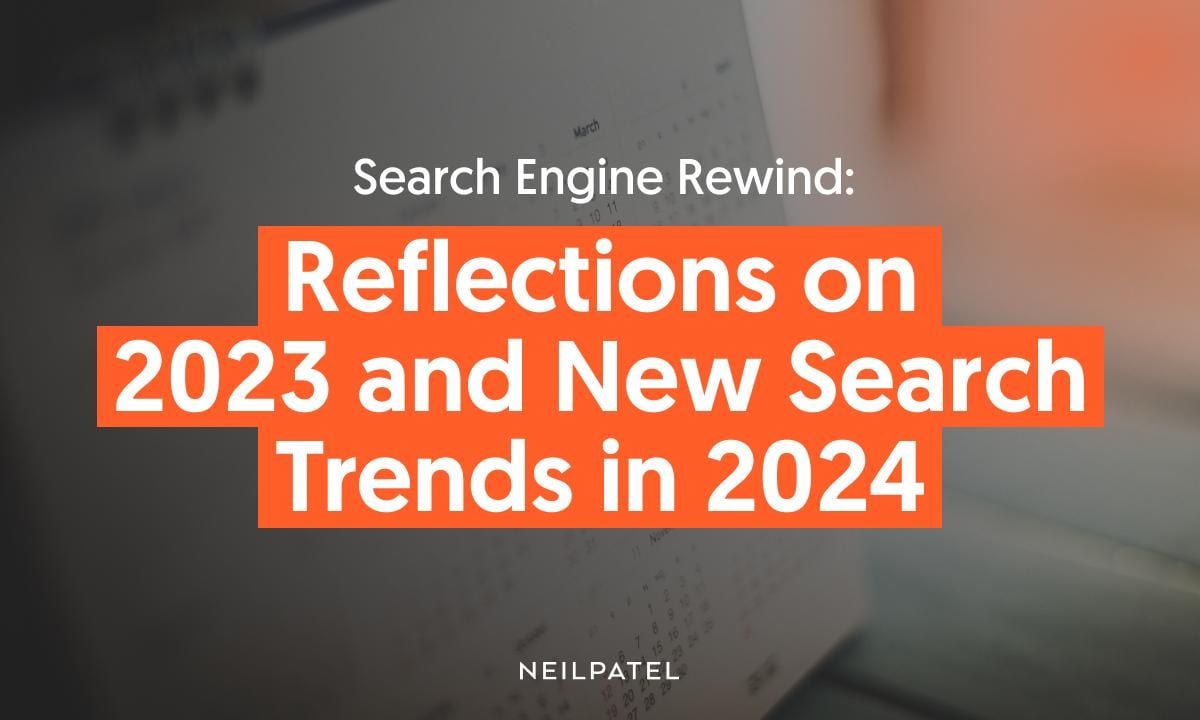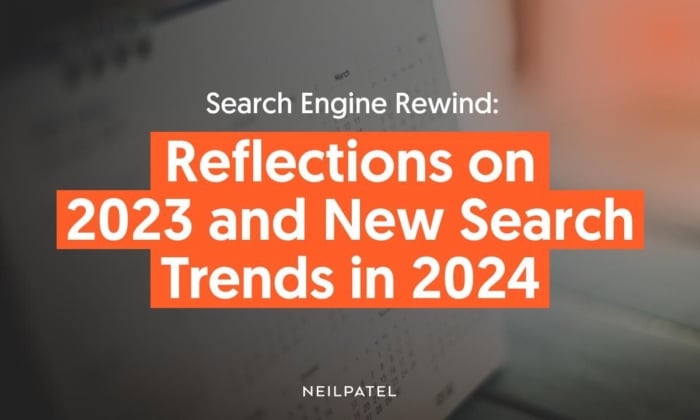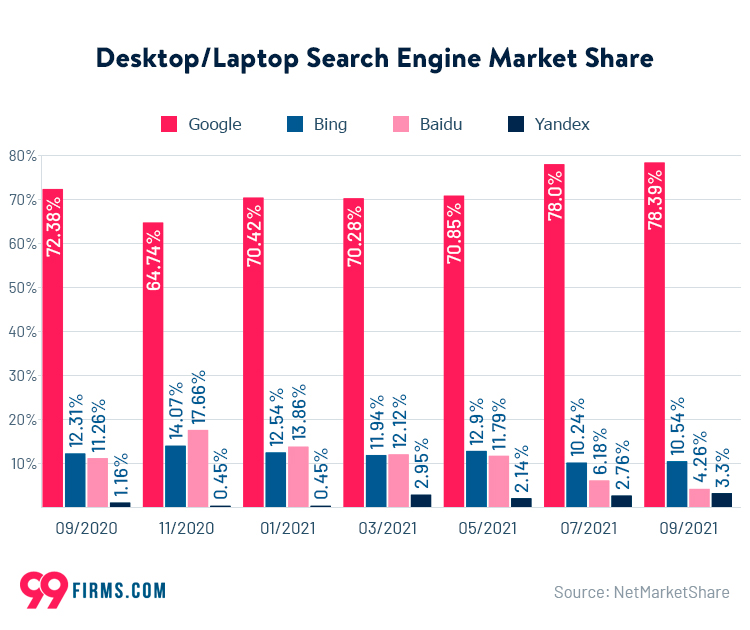Search engine trends change often. Staying updated is crucial for success online.
Understanding the latest search engine trends can greatly impact your website’s visibility. Search engines like Google constantly update their algorithms. These changes influence how websites rank in search results. Knowing the trends helps you adapt your strategies. This keeps your content relevant and searchable. Utilizing SEO ranking tools can also provide valuable insights into your website’s performance and help identify areas for improvement. By staying informed about the latest search engine trends and making use of these tools, you can ensure that your website remains competitive in the ever-evolving online landscape. Additionally, staying on top of these trends can give you an edge over your competitors and attract more organic traffic to your site.
From voice search to mobile-first indexing, each trend offers new opportunities. By following these trends, you can reach a wider audience. It’s essential to keep your site optimized. In this blog post, we’ll explore the key search engine trends. Learn how they affect your online presence and what you can do to stay ahead.
Table of Contents
ToggleEvolution Of Search Engines
The evolution of search engines has changed how we find information. From simple algorithms to advanced systems, search engines have come a long way. Let’s explore this journey and see how it impacts our daily searches.
Early Search Algorithms
In the early days, search engines relied on basic algorithms. These algorithms ranked pages based on keyword frequency. The more a keyword appeared, the higher the page ranked. This method was simple but had flaws.
Some websites used “keyword stuffing” to rank higher. This made search results less useful. Users often found irrelevant pages filled with repeated keywords. Search engines needed better ways to rank pages.
Rise Of Google
Google changed the game with its PageRank algorithm. PageRank ranked pages based on their importance. It looked at the number and quality of links to a page. This method reduced the impact of keyword stuffing.
Google also focused on user experience. It improved search speed and accuracy. Users could find relevant information faster. Google quickly became the most popular search engine.
| Feature | Early Search Engines | |
|---|---|---|
| Ranking Method | Keyword Frequency | PageRank |
| Speed | Slow | Fast |
| Relevance | Low | High |
Google’s success led to new features. They introduced personalized search results. This feature used user data to show more relevant pages. Google also added voice search and image search. These innovations made searches easier and more intuitive.
The evolution of search engines continues. New algorithms and technologies improve our search experiences. The journey from early algorithms to advanced systems shows the importance of innovation. Search engines will keep evolving to meet our needs.
Current Search Engine Landscape
Understanding the current search engine landscape is crucial for anyone involved in digital marketing. This landscape influences how people find information online. Let’s explore the major players and market share analysis in this space.
Major Players
The search engine market is dominated by a few key players:
- Bing
- Yahoo
- Baidu
- Yandex
These search engines control a significant portion of web traffic. Each has unique features and strengths.
Market Share Analysis
Let’s take a closer look at the market share of these search engines:
| Search Engine | Market Share |
|---|---|
| 92.07% | |
| Bing | 2.61% |
| Yahoo | 1.79% |
| Baidu | 1.14% |
| Yandex | 0.87% |
Google is the undisputed leader, holding over 90% of the market share. Bing and Yahoo follow, but with much smaller shares. Baidu is significant in China, and Yandex is strong in Russia.
This landscape shows the dominance of Google. But, other search engines still play essential roles in specific regions.
Voice Search Revolution
The rise of voice search is transforming the way people interact with search engines. With the increasing use of voice assistants, users are now opting for voice commands over traditional text-based searches. This shift is changing the landscape of SEO, requiring new strategies and approaches.
Voice Assistants
Voice assistants like Siri, Alexa, and Google Assistant are becoming household staples. These devices allow users to perform tasks hands-free, making them convenient and accessible. As a result, the number of voice searches has surged.
Voice assistants are used for various activities:
- Checking weather updates
- Finding local businesses
- Setting reminders
- Playing music
Voice search is more conversational and natural. This means that queries are often longer and more complex.
Impact On Seo
Voice search impacts SEO in several ways:
| Aspect | Impact |
|---|---|
| Keywords | Shift towards long-tail keywords and natural language |
| Content | Need for conversational and question-based content |
| Local SEO | Increased importance of local search optimization |
Optimizing for voice search involves understanding user intent and focusing on natural language. Businesses must adapt to these changes to stay relevant in the evolving search landscape.
Ai And Machine Learning
Artificial Intelligence (AI) and Machine Learning (ML) are transforming search engines. They help deliver more relevant and personalized search results. These technologies are evolving and becoming more sophisticated.
Personalized Search
Personalized search tailors results to individual users. AI and ML analyze user behavior and preferences. This leads to more accurate and relevant search results.
For example, if you frequently search for tech news, the search engine will prioritize tech-related articles. This enhances user satisfaction and engagement.
| Feature | Description |
|---|---|
| User Behavior Analysis | Tracks user activities to understand interests. |
| Preference Adjustment | Adapts search results based on user behavior. |
Algorithm Enhancements
Search engines continuously improve their algorithms. AI and ML play a key role in these enhancements. They help in understanding the context and intent behind searches.
This improves the accuracy and relevance of the results. For instance, Google’s BERT algorithm focuses on understanding the context of words in a sentence. It helps provide more accurate answers to complex queries.
Here are some ways AI and ML enhance algorithms:
- Contextual Understanding: Recognizes the meaning behind search queries.
- Intent Analysis: Identifies what users aim to find.
- Dynamic Updates: Continuously learns from new data.
These advancements ensure users get the best possible search experience. AI and ML are crucial for the future of search engines.
Mobile Search Dominance
In recent years, mobile search has taken over. More people use their phones to search than their computers. This shift is influencing search engines to adapt. Let’s explore the significance of mobile search dominance.
Mobile-first Indexing
Search engines like Google now use mobile-first indexing. This means they primarily use the mobile version of a site for ranking. If your site isn’t mobile-friendly, it may rank lower. Ensuring your site is responsive is crucial.
Consider these tips for mobile-first indexing:
- Use responsive web design.
- Improve site speed.
- Optimize images for mobile.
- Avoid intrusive pop-ups.
User Behavior Changes
Mobile users behave differently than desktop users. They seek quick answers and use voice search more often. Understanding these behaviors can improve your site’s performance.
Here are some key user behavior changes:
| Behavior | Description |
|---|---|
| Quick Searches | Users want fast answers. |
| Voice Search | Increasingly popular for on-the-go queries. |
| Local Search | People often search for nearby places. |
To cater to these changes, ensure your content is concise and mobile-friendly. Focus on local SEO to capture nearby users.

Credit: neilpatel.com
Visual Search Technology
Visual search technology is transforming how we interact with digital content. By using images instead of text, users can find information quickly and accurately. This trend is shaping the future of search engines, making searches more intuitive and engaging.
Image Recognition
Image recognition is the core of visual search technology. It allows search engines to identify objects within images. With advanced algorithms, search engines can now analyze and understand photos. They can detect colors, shapes, patterns, and even specific items like brands or products.
For instance, Google Lens and Pinterest Lens use image recognition. Users can take a picture of an item, and these tools will provide relevant search results. This makes it easier for users to find products, get information, or explore visually similar items.
Application In Marketing
Visual search technology has significant applications in marketing. Brands can leverage this technology to enhance user experience and drive sales.
Product Discovery: Shoppers can use visual search to find products they like. By uploading a photo, they can discover similar items across various retailers.
Enhanced Ad Campaigns: Marketers can create more engaging ad campaigns. By using image recognition, ads can be tailored based on the visual content a user interacts with.
Customer Engagement: Brands can engage customers through interactive content. For example, a fashion brand can allow users to upload outfit photos. The system then suggests similar styles or accessories available in their store.
| Benefits | Description |
|---|---|
| Increased Engagement | Visual content attracts more user interaction. |
| Improved Search Accuracy | Users find exact or similar items easily. |
| Better User Experience | Search becomes more intuitive and fun. |
By integrating visual search technology, brands can stay ahead in the competitive market. This technology is not just a trend; it is a powerful tool for improving customer interaction and satisfaction.
Local Search Optimization
The landscape of search engines evolves constantly. One significant shift is the focus on Local Search Optimization. This technique helps businesses reach local customers. It is vital for small businesses. Local search optimization can improve visibility and attract local clients. Let’s explore this topic in depth.
Google My Business
Google My Business (GMB) is a powerful tool for local SEO. It allows businesses to manage their online presence. With GMB, you can provide essential information. This includes your business name, address, and phone number.
A complete GMB profile helps in local searches. It shows your business in Google Maps and search results. Make sure your GMB profile is accurate and updated. Include photos, working hours, and services offered.
Reviews on GMB also matter. Encourage your customers to leave positive reviews. Respond to reviews to build trust and engagement. Here are some tips to optimize your GMB profile:
- Verify your business information
- Add high-quality photos
- Include keywords in your business description
- Update your business hours regularly
- Monitor and respond to reviews
Local Seo Strategies
Local SEO strategies can boost your business visibility in local searches. Start with keyword research. Identify keywords that local customers use. Use these keywords in your website content.
Create location-specific pages. Each page should target a specific area. This can help you rank higher in local searches. Include local landmarks or hotspots in your content. It makes your content more relevant to local searches.
Build local backlinks. Connect with local businesses, bloggers, or news sites. Guest blogging is a great way to build local links. Also, list your business in local directories. Here are some effective local SEO strategies:
- Optimize your website for mobile users
- Ensure your NAP (Name, Address, Phone) is consistent
- Use local keywords in meta descriptions and titles
- Create local content regularly
- Engage with your community on social media
Local search optimization is essential for business growth. Use these strategies to improve your local search presence. Attract more local customers and increase your business visibility.

Credit: scrumdigital.com
Future Trends And Predictions
The world of search engine optimization (SEO) is always evolving. As technology advances, so do search engine trends. This section explores future trends and predictions in the SEO landscape. Understanding these trends can help you stay ahead of the curve and ensure your content remains relevant. One future trend in SEO is the increasing importance of voice search optimization, as more people use smart speakers and virtual assistants to search for information. Another trend is the growing significance of user experience and mobile optimization in search rankings. However, it’s important to be aware of common pitfalls in SEO keywords, such as keyword stuffing and focusing on high-volume, competitive keywords without considering long-tail keywords and user intent.
Emerging Technologies
New technologies are shaping the future of SEO. Let’s look at some key developments:
- Artificial Intelligence (AI): Search engines use AI to improve search results. AI can understand user intent better and provide more relevant results.
- Voice Search: More people use voice assistants like Siri and Alexa. This trend requires optimizing content for voice search.
- Visual Search: Tools like Google Lens let users search using images. Optimizing images for search engines is becoming more important.
- Augmented Reality (AR): AR is growing in popularity. It offers new ways to engage users and present content.
Anticipated Changes
Several changes are expected in the SEO field. Here are some predictions:
- Mobile-First Indexing: Google prioritizes mobile versions of websites. Make sure your site is mobile-friendly.
- Page Experience: Google emphasizes user experience. Fast loading times and easy navigation are crucial.
- Content Quality: Quality content remains key. Focus on creating valuable, relevant, and engaging content.
- Local SEO: Local searches are increasing. Optimize for local keywords and ensure your business is listed on Google My Business.
- Privacy and Security: User privacy is critical. Secure your site with HTTPS and be transparent about data use.
To summarize, staying updated with these emerging technologies and anticipated changes can help you maintain a competitive edge in SEO. Keep learning and adapting to these trends for continued success.

Credit: neilpatel.com
How Can Search Engine Trends Impact SEO Keyword Strategies in Digital Marketing?
Search engine trends can significantly impact strategies for overcoming seo keyword. It’s crucial for digital marketers to stay updated with the latest search algorithms to ensure their keyword strategies remain effective. By understanding these trends, marketers can adapt their SEO efforts to stay relevant and maintain visibility.
How Can Competitor Analysis Help in Understanding Search Engine Trends for Digital Marketing?
Understanding search engine trends for digital marketing can be crucial for staying ahead in the industry. Conducting competitor analysis market insights can provide valuable information about keywords, content strategies, and market positioning used by competitors. This analysis can help identify new trends and opportunities to improve digital marketing strategies.
Frequently Asked Questions
What Are The Latest Search Engine Trends?
The latest trends include voice search, AI integration, and mobile-first indexing. These innovations enhance user experience and search accuracy.
How Does Ai Affect Search Engine Results?
AI impacts search results by improving relevance and personalizing user experience. It helps in understanding user intent better.
Why Is Mobile-first Indexing Important?
Mobile-first indexing ensures websites are optimized for mobile devices. It improves user experience and search rankings.
How Is Voice Search Changing Seo?
Voice search changes SEO by prioritizing natural language and conversational queries. It’s crucial for local search optimization.
Conclusion
Search engine trends constantly evolve. Staying updated is crucial for online success. Regularly monitor these changes. Adapt your strategies accordingly. Focus on user intent and quality content. Optimize for mobile and voice search. Keep your website fast and secure. Pay attention to AI advancements.
Analyze data for insights. These steps help maintain visibility. Stay proactive and informed. Your efforts will pay off. Embrace the trends and watch your online presence grow.








